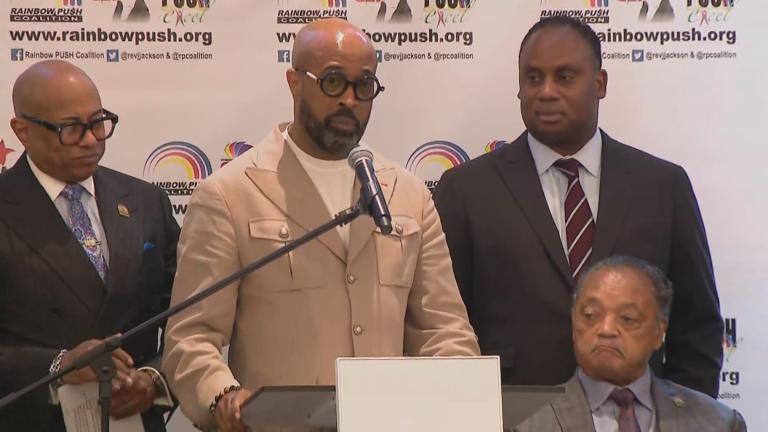Black women are three times more likely to die from a pregnancy-related cause than White women, according to the Centers for Disease Control.
It’s a grim reality that led advocates to start The Gathering, an effort to address these disparities through educational conversations between pregnant people and their health care providers.
The program does not offer direct services, but rather, educational resources. That could look like spreading the word on where people can find mental health resources after birth or discussing cultural and social influence with health care professionals.
“We listened to women who are the West, South sides and were able to come up with an opportunity to educate not just them and their communities, but also the providers who often dismiss, disrespect and disregard (their) concerns,” said Tamela Milan-Alexander, community engagement director at EverThrive Illinois. She is also leading The Gathering campaign.
One resource is a glossary of terms, taking both families and providers step-by-step through what phrases mean. For example, Milan-Alexander brings up “sugar running in a family” — when people mean diabetes.
“Not everybody knows the terms that are used in the community,” Milan-Alexander said.
Inger Burnett-Zeigler, an associate professor of psychiatry and behavioral sciences at Northwestern University’s School of Medicine, dealt with these disparities firsthand with her pregnancy.
“As a health disparity researcher, I knew many of the risk factors that impact Black women,” Burnett-Zeigler said. “But it wasn’t until a personal experience with preeclampsia where I really saw it play out.”
Through that experience, she saw how women are listened to — or not — while talking through symptoms to health care providers.
“You really have to be an advocate for yourself to say, ‘No, something really is wrong,’” Burnett-Zeigler said.
One solution to ensure Black patients are listened to is to pair them with Black providers. Studies have shown this improves the quality of care.
“I still get chills when I think about those providers that ushered me through my delivery, the way that they cared for me, the way that they listened to me,” Burnett-Zeigler said.
The Gathering hopes to ensure that families don’t live through these disparities by having “boots on the ground” spreading word on these resources, Milan-Alexander said.
“‘When you know better, you can do better,’ is what my mom would always say,” Milan-Alexander said.








